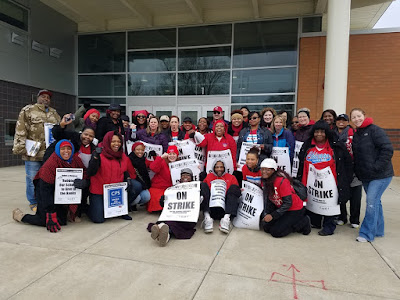 |
| Image pulled from Pinterest: https://www.pinterest.com/pin/33777065925466428/ |
Here are just a few wonderings:
1) Why do we write year-long goals based off of specific standards? Why can't the goals be more broad, like "student will progress in the math curriculum"? Ok, maybe not that broad, but that's pretty much what I want to accomplish. Why do I have to write that a kid is going to practice addition and subtraction skills for a whole year? I don't really want that, I want them to be successful when we do our addition/subtraction unit. And then yes, I want them to carry over that knowledge as it pops up in other units...as needed. But quarterly benchmarks on something we aren't actually studying at the moment? It's annoying and messy. My kids generally need EXTRA time to learn new material. How can I cover the standards I'm supposed to be teaching AND the standards that are in the IEP goals at the same time? Gen Ed kids only have to cover the one topic, but my kids have to do way more work in a less cohesive format. And I want the kids to be successful in all the topics we cover, are you really expecting me to write a goal for all 60+ standards in Common Core for any given grade level? It's stupid.
2) Want to know what else is stupid? IEP minutes are stupid. They are SO RIDICULOUSLY DUMB. What we actually should be talking about is fluid, flexible, fully-resourced access to multiple different educational opportunities based on the needs of the kid at the moment. There is a lot of stuff that happens in the gen ed room that my kids could absolutely participate in. And there are certain units and activities that they would enjoy with their peers. And splitting minutes rarely works (ie half the Literacy minutes as pull-out). Maybe you've figure out ways to do the split thing, but all I've seen is it confusing kids and staff alike with kids being dumped into a classroom mid-lesson completely lost. Why can't we write in "support as needed" or "change settings as needed." I get this is harder to enforce, but there HAS to be a way to add flexibility into the system.
3) Which brings me to educational contexts. You can write the best IEP in the world, but if the school and district where you are has decided to criminally underfund education or completely warp the educational experience with ideological gibberish, what good is it? Educational CONTEXTS matter and we should be able to describe what the student needs beyond the individual. For example, I would put kids in inclusion IF there were caps on freaking class size. But my state has no caps, so I won't subject my students to so-called inclusion classrooms of 34 or more kids, sometimes in split grade-level classrooms. Or, if we weren't subjected to developmentally inappropriate standards (Common Core, cough...cough....) and insane pacing guides, I'd have my kids in the gen ed setting more. The way it is now is completely inappropriate. I need to be able to write in these whole class, whole school needs that affect my students.
4) IEPs written in legalese, not accessible AT ALL to parents and the students themselves. IEPs are a mess of acronyms, clinical reports, numbers and data points. Why can't these things be more user friendly?
5) And SHORTER!! How do some districts accomplish the same legal documentation with less than 10 pages while others are requiring 50+ pages of work?? Why??? WHY?!?!?
6) IEPs are NOT transferable from district to district. We get kids who transfer in from other districts all the time. And the IEPs they come with end up having to be completely re-written in order to use them is our district. Why the complete lack of consistency across districts? Are there NO guidelines in IEPs? What the hell?
7) Data collection is OUT OF CONTROL!! I mean, tally marks, graphs, charts, constant progress monitoring. Before there were disgusting "no excuses" charter schools using numbers in lieu of children, there was special education. Quantitative, harsh cold, "objective" data used for everything. IQ tests, reasoning tests, behavioral tests, standardized test scores, behavior plans...all if it. I understand wanting something "objective" but come on. When I worked in mental health, we did daily charting on behavior, needs, interventions in narrative format. I found that WAY more helpful than freaking percentages, trials, charts, etc. Sometimes it's easy to forget we work with children under all the data. Maybe that's on purpose....
-------------------------------------------------------------------------------------------------------------------
I would guess that the answers to a lot of these questions is...lawyers. Special ed is completely plagued with lawsuits and the ensuing obsession with all things data and numbers. Doesn't quite mesh with the job of working with human children. But I understand how the system doesn't work and hiring lawyers is pretty much the sole line of defense. Still, after 40 years of this growing technocratic solution to the "problem" of beautiful, unique children, things are spinning out of control.
I imagine a very different way to do special education. It doesn't involve needing an IEP in order to get services. Rather, that every child in a school gets an individual learning plan that is incorporated into the school's overall workings. That ALL kids have access to social workers, to learning specialists, to small quiet settings, to accommodations/modifications as needed. No label necessary.
But that utopia is very very far away in today's educational landscape of shrinking budgets, cutthroat accountability, and harsh school choice policies that turn diverse learners into liabilities on your books.
But can't we think of some better ways to function within the system that we've got? Like really, can't we? Something flexible, but binding? Something clear to non-educators, but still addresses all the legal requirements? Something short, transferable, and gets the job done? I know we can do better.



